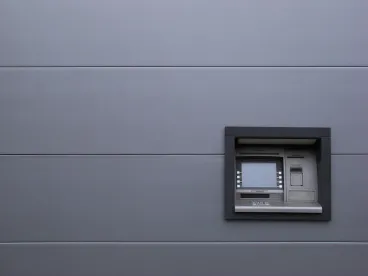As most people (at least in the banking world) know, a security interest is the granting of an interest in property to secure obligations, usually loan debt. If the borrower defaults under its obligations, the bank can foreclose and take the collateral.
In general, there are two main issues in ensuring that a lender has an enforceable security interest. The first concern is whether the bank has a property interest in the collateral and right to take the collateral/foreclose in the event of a default. The second concern deals with the bank’s rights with respect to third parties— i.e. if more than one party has a security interest or other right to the collateral, who gets it? Properly perfecting a security interest ensures that the lender has rights to the collateral vis-à-vis other creditors and third party purchasers according to a standard set of priority rules (which are beyond the scope of this post). In addition, if a security interest is not properly perfected, it is subject to avoidance in a bankruptcy proceeding and the loan would become unsecured.
If a security interest is not properly perfected, it is subject to avoidance in a bankruptcy proceeding and the loan would become unsecured.
The general idea with perfection is that the lender must either have actual possession of, or control over, the collateral to put the “world on notice” that the lender has a security interest in collateral (such as by filing a UCC-1 Financing Statement with the Secretary of State).
A security interest in most types of collateral (e.g., furniture, accounts receivable, non-fixture equipment, etc.) can be perfected by filing a UCC-1 Financing Statement with the Secretary of State of the state in which the borrower is formed/incorporated (or principal residence if the borrower is an individual). A Financing Statement filed with the Secretary of State must be renewed every five years by the filing of a UCC-3 Continuation Statement within the six month period before the expiration of that five-year period.
But, not all security interests can/should be perfected by filing a UCC-1 with the Secretary of State alone. Below is a sampling of the perfection rules for some common and some less common types of collateral. That being said, in most situations, you generally want to take a belt and suspenders approach — perfect by the proper method for the particular type of collateral, but also file a UCC-1 Financing Statement with the appropriate Secretary of State.
Real Estate Mortgages:
Although not strictly a “security interest” governed by the Uniform Commercial Code, a real estate mortgage often is a component of a secured loan transaction, thus it is worth mentioning in this post… In order to perfect security in real estate, the original mortgage, duly executed, witnessed and acknowledged (i.e., notarized) must be recorded in the land records of the jurisdiction in which the real estate is located. For example, in Connecticut, this is done by recording the mortgage with the town clerk; in New York, mortgages are recorded with the county clerk; in Massachusetts, mortgages are recorded with the registry of deeds (or registry district of the land court) for the county (or portion of the county) in which the land is located.
Fixtures:
Security interests in fixtures (generally, furniture or equipment that has been affixed to the building or the land) can be perfected in a few ways:
-
If the security interest in fixtures is taken in connection with a mortgage of the real estate to which the fixtures are attached, the mortgage generally will include language required to perfect the security interest in fixtures. If this is the case, recording the mortgage as described above also perfects the security interest in fixtures.
-
If there is no mortgage involved, you can record a UCC-1 Financing Statement in the land records of the jurisdiction where the real estate is located. (As with Secretary of State Filings, this must be renewed every five years).
-
A security interest in fixtures may also be perfected by filing a UCC-1 Financing Statement with the Secretary of State as with other general types of collateral discussed above. However, perfection of a security interest in fixtures by filing with the Secretary of State will be junior in priority to security interests perfected by filing in the land records. (Again, perfection by this method this must be renewed every five years).
In general, best practice is perfect a security interest in fixtures both with a filing in the land records (item 1 or 2 above) and by filing with the Secretary of State (item 3 above).
Motor Vehicles:
Perfection of security interests in motor vehicles is accomplished by having the interest noted on the certificate of title for the vehicle. In Connecticut, for example, this requires filing an Application for Certificate of Title with the DMV. Note that in Connecticut, if the filing with the DMV occurs within twenty days after the security interest/lien is created, the perfection usually will relate back to the date the security interest was first created.
Boats/Ships/Vessels:
For small vessels, (generally less than 26 feet), a security interest is perfected by filing with the DMV, as with motor vehicles.
For ships, a “preferred ship mortgage” is filed with the Coast Guard National Vessel Documentation Center in West Virginia.
Aircraft:
Security interests in aircrafts are perfected by filing an original, signed security agreement with the FAA Registry in Oklahoma City. The security interest may also be registered with the International Registry in Dublin to be perfected under international law.
Patents and Trademarks:
Security interests in patents or trademarks should be perfected by filing the security agreement with the US Patent and Trademark Office and by filing a UCC-1 with the appropriate Secretary of State (and UCC-3 Continuation Statements as appropriate). Note that a utility patent generally only lasts for twenty years, and once the patent expires, so does the security interest. Trademarks can last indefinitely, provided the borrower continues to comply with relevant procedural requirements and does not abandon the use of the mark.
A caveat with patents: Parties have three months to file a notice of transfer with the US Patent and Trademark Office, which would have priority over subsequent transfers or security interests (even if the subsequent transfer is filed before the earlier transfer). So it is important to do your due diligence and have other evidence or assurance that the borrower had not previously assigned the patent (or wait three months after filing to advance funds in reliance on the security interest).
Copyright:
A security interest in copyrights should be perfected by the filing of an Intellectual Property Security Agreement with the US Copyright Office and by filing a UCC-1 with the appropriate Secretary of State (and UCC-3 Continuation Statements as appropriate). Note that a filing with the US Copyright Office cannot perfect a security interest in unregistered copyrights, so it is advisable to require your borrower to register all of its copyrights. As with patents, copyrights only last for a limited period of time, but because that time period is significantly longer than the twenty-year patents, you generally will not need to worry about it in a loan context. (Generally 70 years after author’s death; or 95 years after publication or 120 years after creation of works made for hire).
Deposit Accounts:
The only way to perfect an interest in a deposit account (i.e., a bank account) is through “control” (though a UCC-1 is often also filed with the Secretary of State). Control may be obtained in one of three ways (four if New York law applies):
-
The lender obtains control if it is the bank in which the deposit account is maintained;
-
A lender may obtain control by entering into a deposit account control agreement executed by the lender, the borrower and the bank at which the account is maintained; or
-
The lender may obtain control if the lender (instead of the borrower) is the bank’s customer for the deposit account.
-
In New York, a lender can also obtain control if the name on the deposit account is the lender’s name or the name of the account indicates that the lender has a security interest in the account.




 />i
/>i

